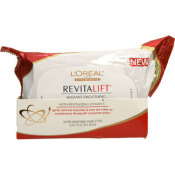Academy Award-Winning Tips to Thrive in the Makeup Industry
Published Jun 30, 2012

What would you ask one of the world’s top movie makeup artists? Attendees at this year’s IMATS in Los Angeles had the opportunity to voice their questions to three-time Academy Award-winning makeup artist Ve Neill, who served as department head for this year’s Hunger Games and The Amazing Spiderman.
Neill, whose legendary hands helped transform films such as Beetlejuice, Edward Scissorhands, Mrs. Doubtfire, and the Pirates of the Caribbean, is currently a judge on SyFy’s special effects makeup competition Face Off, and is re-launching her brush line "Ve's Favourite Brushes" after a two-and-a-half year development phase. Hearing her tips, tricks, and stories up close is one of the biggest beauty fan girl moments we’ve ever experienced. And no territory went uncharted—Ve imparted her no-nonsense advice to fledgling artists on everything from attitude on set, the one foundation she can’t stop using, and the number one mistake young makeup artists make. These are the bits of wisdom we captured.
On drawing the line between pretty and ugly [for "The Hunger Games"]...
“It’s a movie. The directors and producers say ‘no, we don’t want it to be ugly, we want her to be pretty.’ You do the best you can, you make them look the way you believe—if they say it’s too much, then it’s too much. You are the tool of the director, and if the director doesn’t want you to make them look ugly, then by gosh you better not. Yes, she can be cut up but we want her to be pretty. After all, they are selling tickets. With Hunger Games, it’s a fantasy. You have to fight your battles.”
On her current favorite foundation...
“I love Make Up For Ever HD Foundation. I use it on almost everything now. I like it because there’s a lot of pigment, it can thin out, it holds up well, and is easy to repair. I used it exclusively on Hunger Games and The Amazing Spiderman.”
On hiring a makeup PA...
“There’s a lot of gofering on set, stuff that has nothing to do with makeup application. Instead of hiring an actual artist, I will hire a PA. Most shows have a budget that allows me to hire PAs with very minimal pay. The very first intern/PA I ever had in 1998 is now a member of 706 [a local makeup union]. This is another way for you to get in and meet people. I’m not the only one who does it. Every department head in 706 will always hire a makeup PA.”
On the biggest lesson she’s ever learned in her career...
“Never leave town without your makeup assistant. I have gone on location without my people and it’s been horrible. They know how you work.”
On taking jobs...
“This is for you working artists: NEVER TURN DOWN A JOB. I don’t care if they tell you they’ll pay you in gas money. Take the money, put it in your car, and get over there. Because you never know who you’re going to meet. You can go to a job, work for free, kill yourself, and wow—you just met the person that’s going to give you your next job. Or you can sit at home and drink a beer. What would you rather be doing? You need the experience, you need to get out there and practice. You need to get out on a set and see what it’s like to work as a team member. It’s very important to have all that in your basket. Everyone works differently—all productions, producers, and production managers are different. You have to learn how to deal with these people.”
On school vs. real-world experience...
“It’s definitely important to get an education now. Makeup has advanced by leaps and bounds, and there are so many products out there and so many different ways to do things. Plus, there are a lot of good schools now. I’m self taught—when I started there were no schools for me! There was one beauty school called Elegance, and they had a mini course on effects but I went and did it myself. Schools are pricey, but you have to consider what it’s going to give you. Your competition is going to school. Your competition will have all that knowledge; do you want to be without it? I don’t think so. You’ll be introduced to products, how to use them properly, and how to take care of your equipment.”
On what’s currently in her kit...
“I use a lot of La Mer because it’s a big name and actors love it. My favorite skin care is made by Natura Bissé, which is dreadfully expensive but amazing. Embryolisse also makes great stuff. I use a lot of MAC skin care for guys that don’t want to mess around, and wipes from L’Oréal because they take off my eye makeup lickety split. For prosthetics, I’ll always clean the face with Kiehl’s Blue Astringent, then I’ll do applications with adhesives.
On letting actors leave makeup on...
“It’s really important that your actors do not leave the set with their makeup on. They go out to eat, get lazy, then go to sleep with the makeup on. Skin care is a really important part of a makeup artist’s job, because how they come back to you the next day is your fault if they’re covered in pimples or dry patches. I always put a skin care kit together for my makeup artists for every actor to take home. On the set of Hunger Games, I would use a galvanic wand treatment on the kids; in many cases a lot of the young skin really improved from doing those treatments.”
On what you can’t teach in makeup school...
“What most kids are lacking is obviously experience, something you only really get by trial and error. Experience is what teaches us our craft. I think those are the things you can’t really teach people in school. Also, set etiquette is really difficult to learn. I didn’t know what I was doing the first time I showed up on set. Who are these people? What do they do? Learn the roles.”
On burning bridges...
“Always take the high road, guys. Never burn a bridge—you don’t know when you will see that person next. Always be pleasant to everybody, because you might work with that same person someplace else. I make it a habit never to be unpleasant to anybody—you never know whose daughter they are, whose boyfriend they are, or who they’re married to.”
On knowing it all...
“As far as I’m concerned, if you are a makeup artist you damn better know how to do it all, because if you’re going to work on movies there are no ‘categories’ for artists. If you’re in movies you have to do it all. If you’re going to work for me you have to do it all. There are a lot of people who only specialize in special effects or glamour makeup, and that’s all they’ll ever be hired for. But a good, rounded makeup artist should never put themselves in a box.”
On staying honest...
“Don’t lie. Don’t start putting your name on shit you didn’t do—really, you don’t need to. Get your test makeups on your resume or your blog, but don’t take credit for other people’s work because someone will bitch-slap you good. Be honest about your resume, try to keep it to what you’ve actually done. If you were background on something, just write “BG”—there’s nothing wrong in saying you were in the bullpen doing background on a movie. Nobody likes a liar.”
On the one technique that’s hard to master...
“Good ‘dirty’ is hard to do. You’ve got to make it look like its ground in, like it’s been there. Everyone in Hunger Games was dirty, even if didn’t look like they were—but the beauty is in the subtle things. If they weren’t dirtied up they’d look spanking clean and weird. Practice good dirt.”
Featured Products
You Might Also Like
-
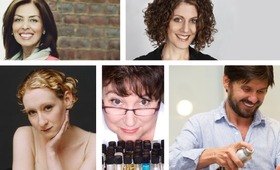
Beauty Careers
So You Want a Career in Beauty? Part 3
- 103
-
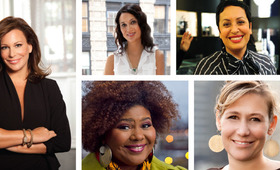
Beauty Careers
So You Want a Career in Beauty? Part 1
- 277
-

Beauty Careers
A Beginner's Guide to Beauty Networking
- 450
-
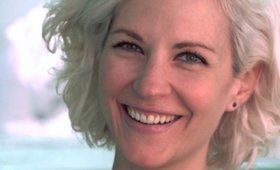
Beauty Careers
Good Advice: Makeup Artist Theo Kogan Dishes Out Words Of Wisdom
- 194
-
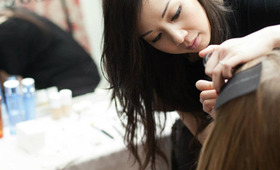
Beauty Careers
How Social Media Launched an Amazing Makeup Career
- 165
-
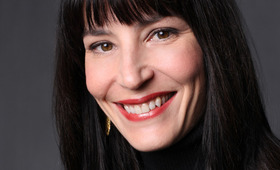
Beauty Careers
Beauty Careers: What it Takes to Make it in Marketing
- 237



